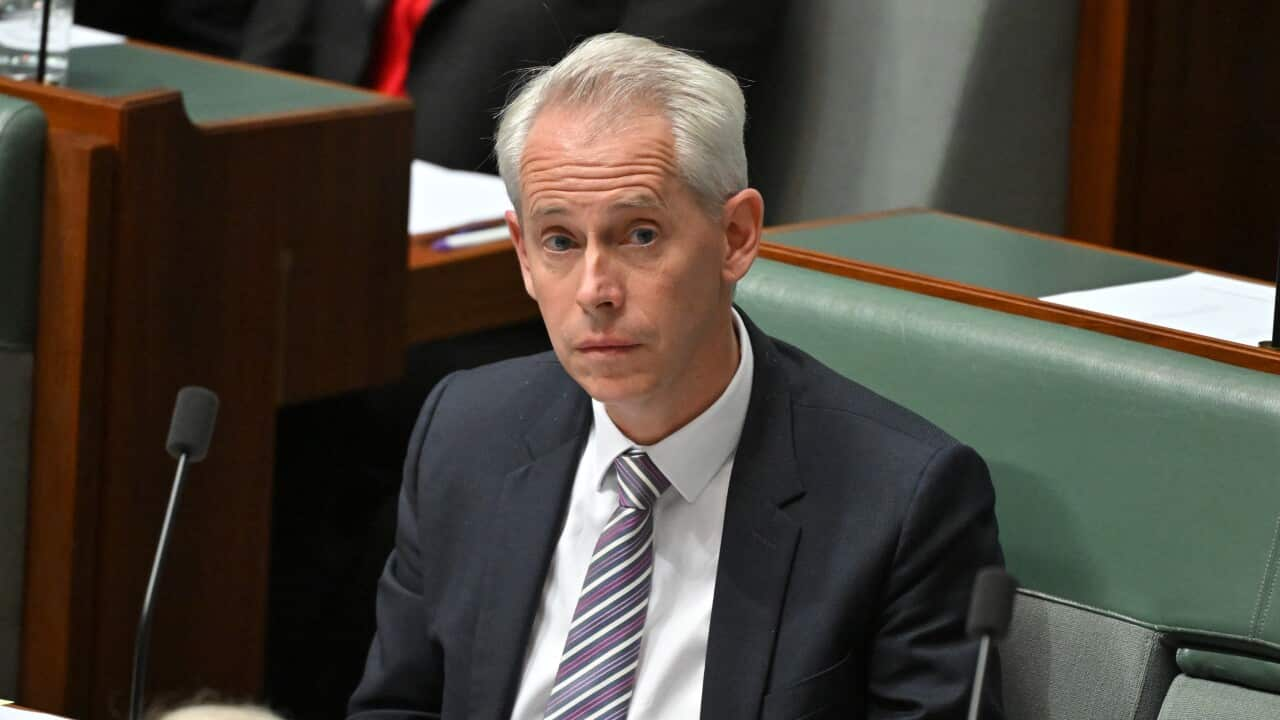At least two former detainees convicted of either murder or attempted murder were released into the community with no requirement to wear ankle bracelets, the Senate has heard.
The revelations increased pressure on the government, which has been under fire over its handling of the fallout from
Earlier this year, it was revealed that seven of the 153 released detainees had been convicted of either murder or attempted murder.
Fewer than five of these seven were currently required to be electronically monitored, an Australian Border Force official said in response to a question from Opposition home affairs spokesperson James Paterson at a Senate estimates hearing on Wednesday.
"That's extraordinary, how on earth can we have former murderers not being electronically monitored in the community?" Paterson questioned.
Officials defended the figures on Wednesday, saying restrictions needed to withstand court challenges and weren't applied in a blanket manner under the law.
"It's a legal test, this has to be legally robust," Australian Border Force Commissioner Michael Outram said.
"The law doesn't give us a list of offences or convictions by which we have to apply conditions."
Ankle bracelets and curfews weren't a panacea and people subject to such measures could still reoffend, he added.

The Australian Border Force said some criminals released from indefinite immigration detention did not wear ankle bracelets. Source: Getty / picture alliance/dpa
Of 39 convicted sex offenders, 26 aren't being electronically monitored and 27 aren't subject to curfews.
Direction 99 to be amended
Meanwhile, Immigration Minister Andrew Giles says he will be updating a controversial ministerial direction that has allowed a number of migrants convicted of violent crimes to escape deportation.
This is amid intense pressure from the Opposition for the minister to be sacked due to the directive which requires the Administrative Appeals Tribunal to consider a foreign national's ties to Australia when reviewing visa cancellation decisions.
Earlier this week, the AAT released its decision in the case of a man known as CHYC, reinstating a visa for the New Zealand man who pleaded guilty to raping his stepdaughter.
Giles says his updated version of ministerial direction 99 will ensure a greater consideration of community safety concerns.
"The new direction will ensure that all members of the AAT will adopt a commonsense approach to visa decisions," Giles said on Wednesday.
"First and foremost, this means ensuring that the protection of the community outweighs other considerations ... The revised direction will also strengthen the principles of community safety in the making of decisions."
- With additional reporting by Australian Associated Press










